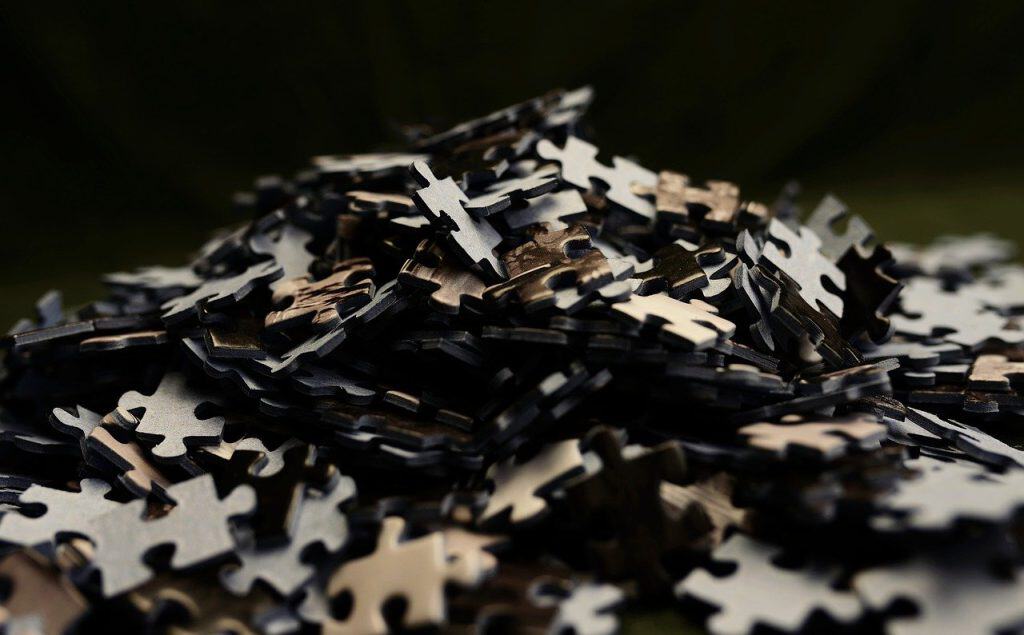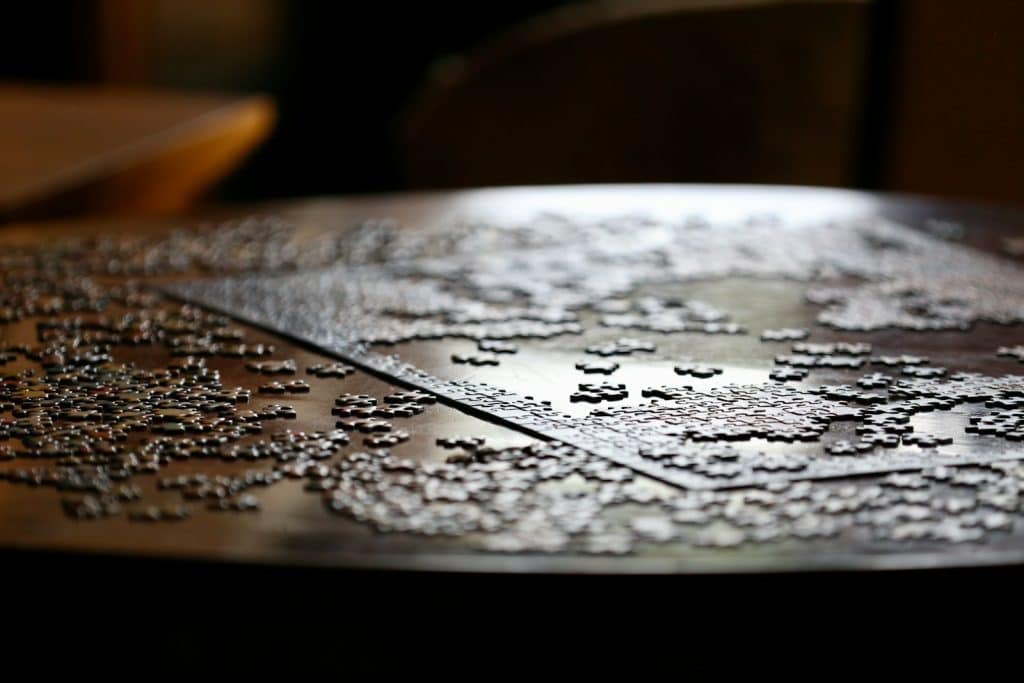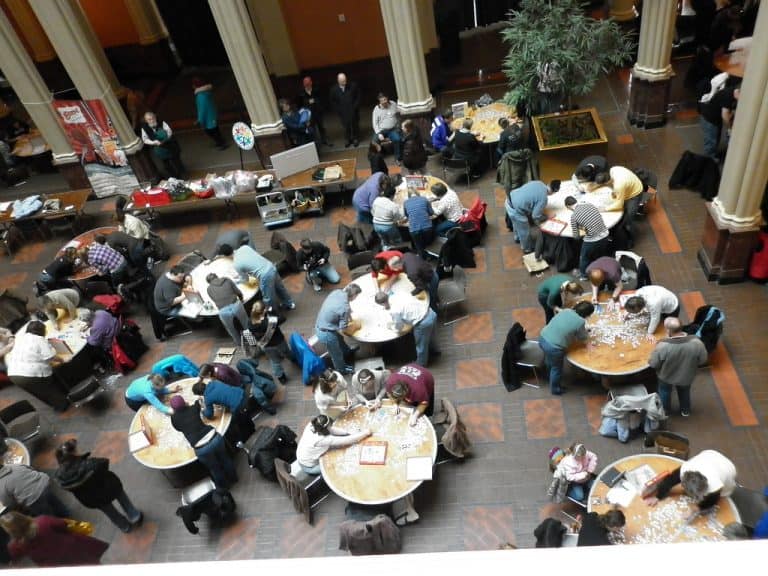Imagine stepping into a world where patience meets precision, and every piece plays a pivotal role in crafting a masterpiece. That’s the essence of jigsaw puzzle competitions, a realm where enthusiasts and sharp minds converge to challenge their puzzle-solving prowess. Whether you’re a seasoned competitor or a curious newcomer, these contests offer a unique blend of tension, excitement, and the sheer joy of creating something beautiful from hundreds or even thousands of scattered pieces.
Jigsaw puzzle competitions aren’t just about who can finish first; they’re a test of focus, strategy, and sometimes teamwork. As you dive into the world of these intriguing contests, you’ll discover not only the intense concentration involved but also the camaraderie and community that build around the puzzle tables. Ready to piece together the details? Let’s explore what makes these competitions a fascinating pursuit for puzzlers around the globe.
Understanding Jigsaw Puzzle Competitions

Jigsaw puzzle competitions bring together problem solvers to celebrate the intricate art of puzzling under the pressure of the clock. These events showcase a diverse range of skills from precision and speed to strategic planning and teamwork.
The Basics of Competitive Puzzling
Competitive puzzling involves assembling jigsaw puzzles under time constraints, with competitors striving for the quickest completion times. These contests require not only speed but also an effective puzzle strategy to efficiently find and place pieces. Events often vary in length and complexity, from quick, 500-piece puzzles to more daunting 1000-piece challenges.
The rules are straightforward: begin assembling when the clock starts and aim to complete the puzzle as quickly as possible. Judges oversee the event to ensure all pieces are correctly placed and to verify the final times. Competition intensity and the mix of individual and team events make these contests appealing not only to puzzle enthusiasts but also to those who thrive in high-energy environments.
Types of Competitions
Jigsaw puzzle competitions are categorized typically by format and participant makeup. The two most prominent categories include individual competitions and team-based events. Individual contests, often highlighted at events like the USA Jigsaw Puzzle Association championships, test personal puzzling speed and skill. In contrast, team competitions, as seen at the World Jigsaw Puzzle Championship, emphasize collaboration and collective problem-solving strategies.
These events also differ in scope and scale, ranging from local community gatherings to international championships. Each type provides unique challenges and atmospheres, from the intense focus of world-class competitions to the communal vibe of local puzzling contests. Whether you participate to win or for fun, each competition offers a way to enhance your puzzling skills while enjoying the camaraderie of fellow puzzlers.
How to Prepare for a Jigsaw Puzzle Competition

Preparing for a jigsaw puzzle competition involves developing specific skills, choosing the right puzzles, and strategizing for speed and efficiency. Your success in these competitions depends greatly on your preliminary preparations.
Essential Skills for Competitors
Developing a keen eye for puzzle piece shapes and colors is crucial for competitive puzzling. You’ll benefit from practicing pattern recognition and spatial awareness to enhance your puzzle-solving speed. Enhancing your ability to quickly sort and organize pieces by color and shape can drastically reduce your completion time. Engaging in regular time trials with puzzles of varying complexity will help you understand your strengths and identify areas for improvement, ensuring you’re well-prepared for the fast-paced environment of a competition.
Choosing the Right Puzzles
Selecting the appropriate puzzles for practice is a strategic element of your preparation. Opt for puzzles that are commonly used in competitions, such as those approved by the World Jigsaw Puzzle Federation. These puzzles often feature varying levels of complexity and themes that are likely to be similar to those you’ll encounter in contests.
Moreover, working with puzzles from reputed puzzle companies can offer you a quality experience similar to that of official competition settings. Quality puzzles typically ensure that pieces fit well and can be handled repeatedly during practice sessions, which is essential for developing speed and precision in puzzle assembly.
Organizing a Jigsaw Puzzle Competition
Organizing a jigsaw puzzle competition involves careful planning and coordination to create an exciting and fair event for all participants. Whether you’re hosting a local fun day or aiming for the standards of the World Jigsaw Puzzle Championship, you’ll need to focus on the details that matter.
Necessary Equipment and Setup

To ensure your jigsaw puzzle competition runs smoothly, you’ll need the right equipment and setup. First, secure several tables that give participants ample space to work on their puzzles. Each table should accommodate the size of the puzzle and the number of team members, if it’s a team event. Puzzle mats or boards can be provided to allow for easy moving and safeguarding of ongoing work.
Moreover, adequate lighting is crucial, so ensure each table is well-lit to avoid eyestrain and enable easy viewing of puzzle pieces. Finally, consider timekeeping devices or software to meticulously track completion time, a critical aspect especially in competitive puzzling where speed is a vital component of the competition.
Finding and Managing Participants
Attracting and managing participants is key to the success of your jigsaw puzzle competition. Start with a clear, detailed registration process handled through an online platform. This makes it accessible for potential participants to sign up and receive all necessary event information. Make use of social media, local community boards, and jigsaw puzzle forums to advertise your event. Partnering with puzzle companies can also boost your visibility and credibility.
Once registered, keep participants informed and engaged through regular updates via email or a dedicated event page. Manage participant data carefully, ensuring you’ve a robust system in place to track who will compete, in what category (individual or team), and at what times. This organization is crucial for a smooth-running event on the day of the competition.
Highlighting Major Jigsaw Puzzle Events
Jigsaw puzzle competitions combine the thrill of competition with the joy of puzzling, providing both a challenging and entertaining experience for participants. These events range from local gatherings to major championships, attracting puzzlers from all walks of life.
National and International Championships
National and International championships represent the pinnacle of competitive puzzling. The USA Jigsaw Puzzle Association organizes several national events throughout the year, culminating in the grand USA Puzzle Championship. Here, competitors engage in speed puzzling to complete puzzles of various complexities and sizes—from 500 to 1000 pieces—against the clock.
Examples of prestigious international competitions include the World Jigsaw Puzzle Championship, hosted by the World Jigsaw Puzzle Federation. This event, typically held in Spain, gathers teams from across the globe to compete in a highly structured and intense puzzling environment. Not only do these championships test speed and skill, but also teamwork and strategy, as teams work together to assemble puzzles as rapidly as possible.
Virtual vs. In-Person Formats
The rise of virtual events has significantly changed the landscape of jigsaw puzzle competitions. Virtual puzzle contests allow participants to compete from the comfort of their homes using digital platforms. These events require competitors to use specific online puzzle tools and often follow the same rules and time constraints as in-person competitions. However, in-person events, such as those held during the Paul Winter Carnival, offer a more tactile experience where participants can physically manipulate puzzle pieces.
These formats provide different challenges and advantages: virtual competitions eliminate geographical barriers and reduce organizing costs, while in-person events foster community bonding and offer a more sensory puzzle-solving experience. Both formats continue to evolve, ensuring that all puzzlers, regardless of location, can join the fun and excitement of competitive puzzling.
Final Thoughts
As you’ve discovered jigsaw puzzle competitions offer a thrilling blend of challenge and community. Whether you’re a seasoned competitor or new to the scene these events provide a unique opportunity to sharpen your cognitive skills and connect with like-minded enthusiasts.
Embrace the challenge of competing in either a virtual or in-person event and experience the satisfaction of completing puzzles under competitive pressure. Remember to stay updated on upcoming competitions and perhaps even set your sights on the prestigious international championships. Dive into the world of competitive puzzling and enjoy every piece of the experience!
Other suggested articles:
What Kind of Person Likes to Do Jigsaw Puzzles?
What Are Some Famous Jigsaw Puzzle Brands Known for Their Quality?

